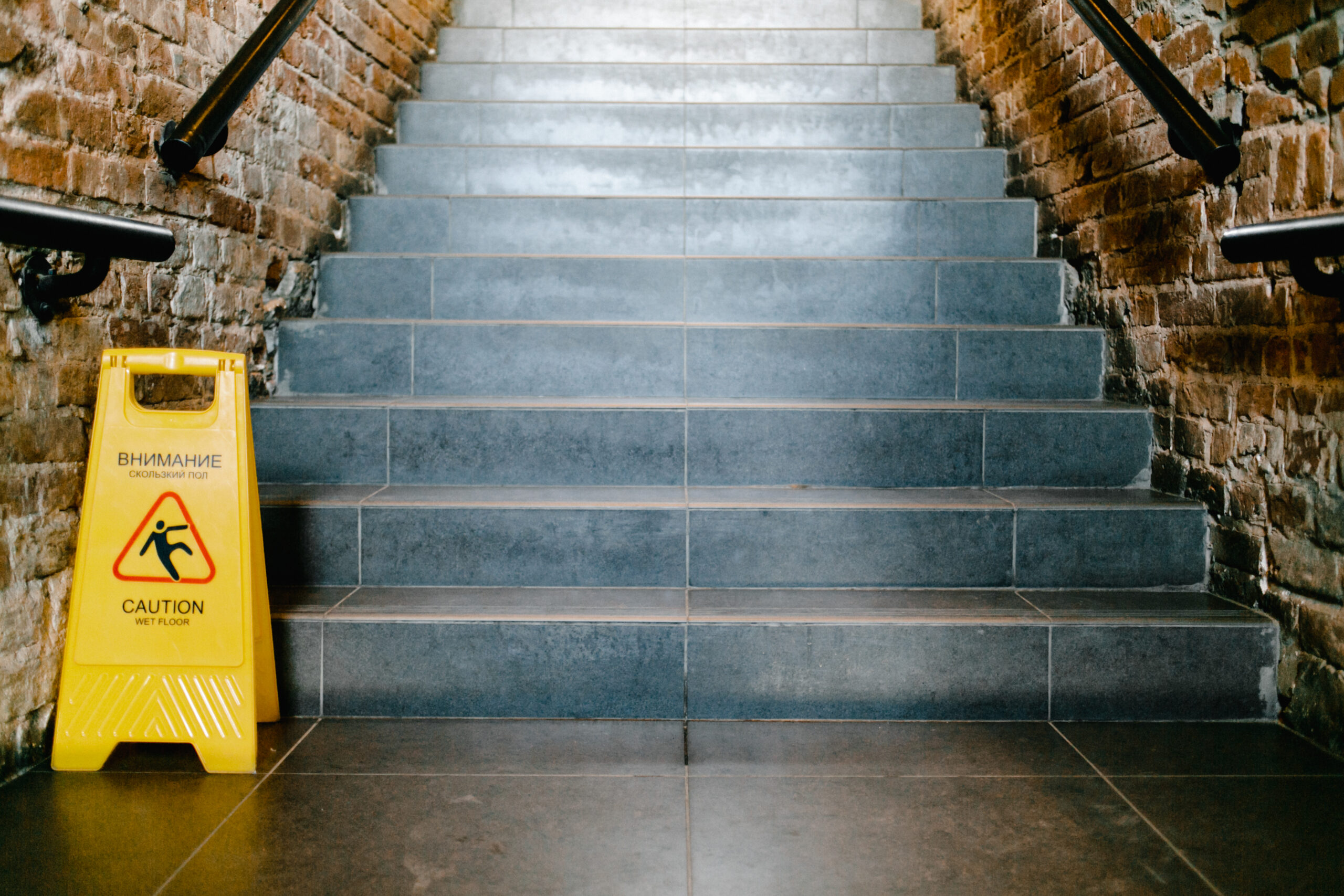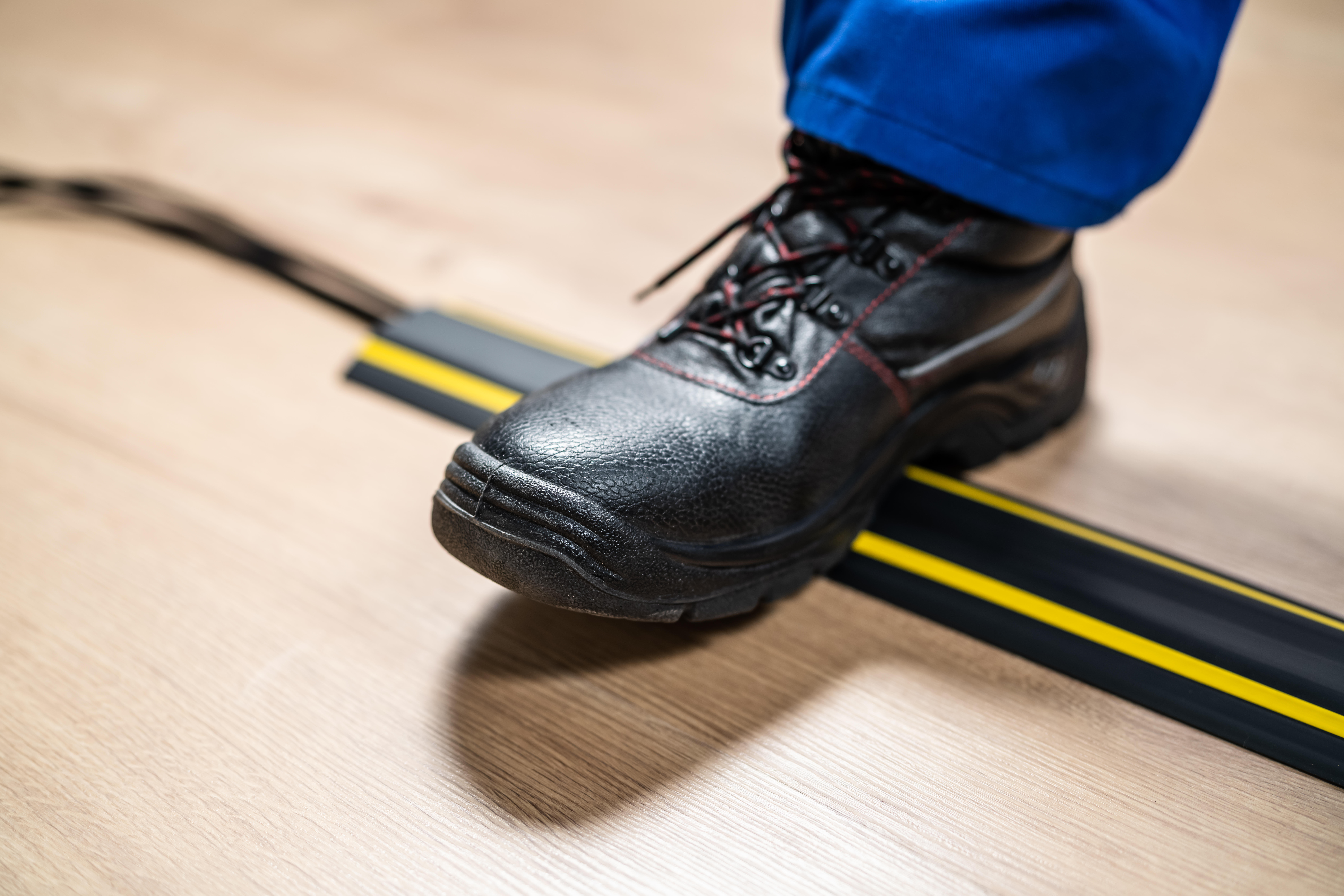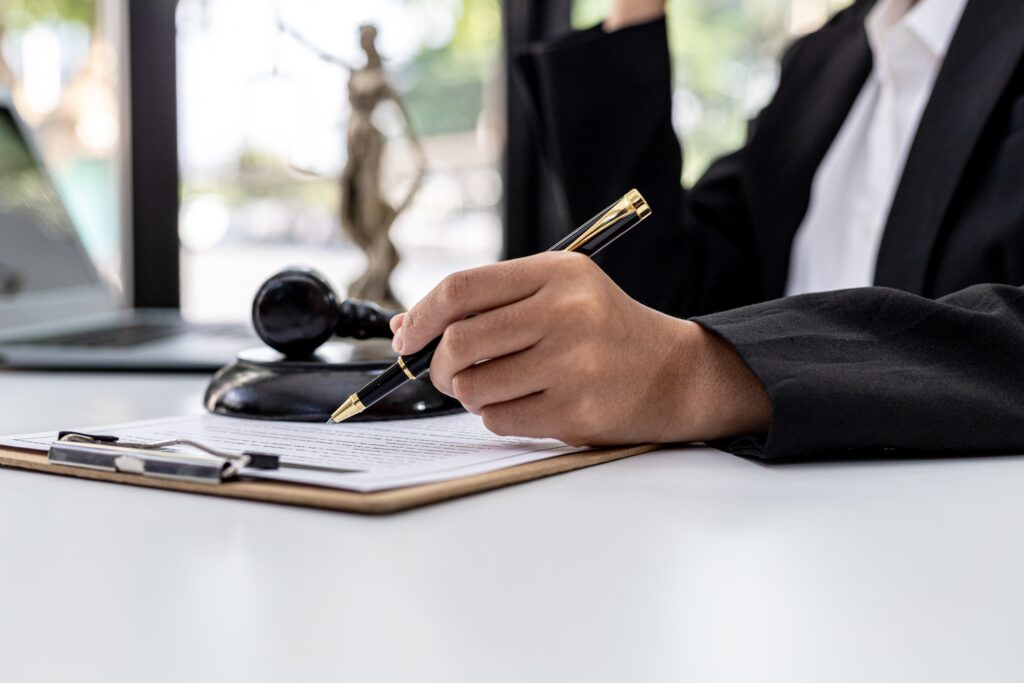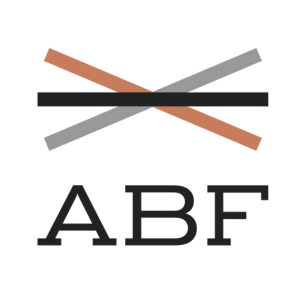You were walking on a slick sidewalk outside a grocery store in your city. Suddenly, your feet fly out from underneath you, and you slam the back of your head on the pavement.
You suffer a serious concussion and whiplash. What should you do?
Unfortunately, these accidents on other people’s property happen often in America. After getting medical attention, contact a seasoned New Jersey premises liability attorney in your community. You may file a personal injury claim for your medical bills, lost earnings, pain and suffering, and emotional distress.
What Is a Premises Liability Claim?

A premises liability claim may arise when you suffered an injury or harm on another person’s or entity’s property due to unsafe or defective conditions.
A premises liability claim holds property owners or occupiers responsible for maintaining a reasonably safe environment for visitors, guests, or customers.
The key parts of a premises liability claim are:
- Duty of care: The property owner or occupier is legally obligated to ensure the premises are safe for visitors. The level of care owed can depend on the visitor’s status. An invitee on the property is owed the highest duty of care. Licensees are social guests or present with permission and are owed a moderate amount of duty of care. Those on the property without permission are owed minimal duty.
- Breach of duty: The owner failed to maintain the property or address hazards, such as an olive oil spill that was not quickly cleaned up in a grocery store.
- Causation: The unsafe condition directly caused the injury or harm.
- Damages: The injured party suffered actual harm, such as medical bills, lost income, or pain and suffering.
To pursue a claim, the injured party typically must prove the property owner’s negligence. This might involve gathering evidence like photos of the hazard, witness statements, or maintenance records.
The property owner might defend themselves by arguing that the condition was obvious, that the visitor was at fault, or that they had taken reasonable steps to prevent harm.
You can expect the insurance company to fight your claim.
Thus, always retain a skilled personal injury attorney to represent you. They will hold the liable party accountable, attempt to prove negligence, assess your damages, and demand maximum compensation from the insurance company.
Premises Liability Claim Statistics
Premises liability claims are among the most common of all civil litigation in the United States. The Department of Justice stated that premises liability claims comprise 11 percent of all civil cases that went to trial.
Some revealing premises liability claim statistics are:
- Prevalence of slip-and-fall claims: Falls are the most common type of premises liability claim, accounting for a significant portion of cases. In 12 months, over 33,000 individuals died in slip-and-fall accidents, highlighting their severity.
- Annual fall incidents in the U.S.: Approximately 250,000 reported slip-and-fall incidents per year in the U.S. resulted in injuries to 20-30 percent of the victims. The actual number is likely higher due to unreported cases.
- Compensation Awarded: Premises liability victims receive about $4 billion annually in compensation across the U.S., the DOJ reports.
- Civil trial representation: Of the 11 percent of civil cases decided by trial, over 90 percent were determined by jury trials.
- Injury victim success rate: Plaintiffs win approximately 39 percent of premises liability trials that go to court, a lower success rate than motor vehicle accident cases – 61 percent. Ensure that you have a top-notch premises liability litigation attorney representing you.
- Industries involved: The retail industry sees 60 percent of fall-related incidents, while most fall-related deaths occur in residential settings.
- Pedestrian accidents: Faulty or defective sidewalks cause about 25 percent of pedestrian accidents, a common premises liability issue.
- Wrongful death claims: Of 452 wrongful death civil trials in 2001, 5 percent were linked to premises liability, showing its role in severe outcomes.
Walmart often is the site of slip-and-fall claims. Note that Walmart self-insures, so the company handles its own insurance claims. A skilled premises liability attorney should always represent you if you file a claim against Walmart.
Premises Liability Claim Overview
You may not know what to do after an accident on someone else’s property.
A premises liability claim usually involves:
- Accident investigation: You and your premises liability attorney should collect evidence. For example, suppose you fell on a wet floor in the grocery store. In that case, gather photos and videos of the accident scene, surveillance footage, witness statements, and possibly accident reconstruction professional testimony.
- File a premises liability claim: You will usually file a claim against the liable party’s insurance company. If you suffered an injury in a grocery store, your attorney will likely file a claim against their insurer. If you suffered an injury in someone’s home, your premises liability attorney will probably file against the homeowner’s policy.
- Determine damages: Your premises liability lawyer will determine your degree of injury, current and future medical bills, current and future lost earnings, and pain and suffering. Most accident victims vastly underestimate their damages, so have an attorney handle this critical task.
- Settlement demand: Your personal injury attorney will write a demand letter for compensation to the liable insurance company. The letter will include evidence of liability and documentation of your damages.
- Settlement or litigation: The claim can end with a settlement, but the insurance company may decide to take the case to court. Always choose a strong personal injury attorney skilled in settlement negotiations and litigation.
Where Do Premises Liability Accidents Happen?
Premises liability accidents can occur wherever someone’s negligence leads to dangerous conditions.
You may have a premises liability claim if you suffered an injury on:

- Private residences: Slippery floors, uneven stairs, or poorly maintained walkways can cause injuries at someone’s home.
- Commercial properties: Stores, restaurants, or offices may have hazards like wet floors, cluttered aisles, or inadequate lighting.
- Public spaces: Parks, sidewalks, or government buildings can be sites of accidents due to cracks, potholes, or lack of signage.
- Parking lots: Poorly maintained surfaces, ice buildup, or insufficient security can lead to slips, trips, or assaults.
- Apartment complexes: Broken railings, unlit hallways, or faulty elevators are common risks in multi-family housing.
- Workplaces: Factories, warehouses, or offices might have spills, exposed wiring, or unsafe equipment posing dangers.
- Recreational areas: Amusement parks, gyms, or pools can become hazardous due to equipment malfunctions or lack of supervision.
These accidents typically stem from a property owner’s failure to maintain a safe environment. Speak to an experienced premises liability attorney to determine if you have a valid claim.
Common Types of Premises Liability Accidents
Some of the most common types of premises liability claims are:
Slip and Fall Accidents
Caused by wet or slippery floors, uneven surfaces, spilled liquids, or icy walkways. For instance, if a grocery store neglects to clean up a spill, a customer slips and injures themselves.
Trip and Fall Accidents
Results from obstacles like exposed cables, cluttered walkways, uneven pavement, or poorly maintained stairs. For example, a tenant trips over a broken step in an apartment building.
Inadequate Maintenance
Occurs when property owners fail to repair hazards like broken railings, potholes, or crumbling sidewalks. For example, a visitor falls through a rotting porch on private property.
Swimming Pool Accidents
This premises liability claim may involve drownings or injuries due to lack of fencing, slippery decks, or poor supervision. For instance, a child nearly drowns in an unfenced residential pool and suffers brain damage.
Elevator or Escalator Malfunctions
Mechanical failures, poor maintenance, or sudden stops often cause these claims. A typical example is when a shopper suffers an injury when an escalator in a mall abruptly jams.
Falling Objects
A falling object claim can happen when items are improperly stored on shelves, or construction materials are not secured. For instance, a warehouse customer is hit by a box falling from a high shelf.
Inadequate Security
Inadequate security can trigger a claim because of assaults or injuries due to insufficient lighting, lack of security personnel, or broken locks. An example is a tenant attacked in a dimly lit parking garage with no cameras.
Dog Bites or Animal Attacks
This common type of claim may occur when property owners fail to restrain or warn about dangerous animals. For instance, an unleashed dog bites a delivery worker on someone’s property.
Toxic Exposure
You may have a claim if poor property upkeep causes exposure to chemicals, mold, or asbestos that affects your health. For example, a worker might get sick from prolonged mold exposure in an office building.
Talk to a premises liability lawyer if you think a property owner’s negligence caused your injury.
What Is My Premises Liability Claim Worth?

You may have severe injuries after a premises liability accident. You need money to pay your medical bills and regular expenses and compensate for your lost work time.
What is your claim worth? Its value depends on:
- Injury severity: How bad are you hurt? A scraped knee is worth a lot less than, say, a broken back or a traumatic brain injury. Medical bills, past and future, are a big part of this. Make sure that your medical bills and treatments are documented.
- Negligence: Was the property owner clearly at fault? Did they ignore a gaping hole in the floor for months, or was it a freak accident? The stronger the proof that the owner is negligent, the better your shot at a decent payout.
- Lost income: Did you miss work because of the injury? If you’ve got pay stubs showing lost income or proof you couldn’t take on gigs if you’re self-employed, that adds to the total.
- Pain and suffering: This one’s trickier. Courts sometimes use a multiplier from 1 to 5 to estimate emotional distress or life disruption. The worse the impact, the higher it might go.
- Insurance limits: Even if your claim is strong, the property owner’s insurance policy might cap what you can get. Most homeowners have $100,000 to $300,000 in liability coverage; businesses might have more.
Call a premises liability attorney in your area today for a more accurate idea about your case value.
How Long to Settle a Premises Liability Claim?
The time it takes to settle a premises liability claim can vary widely depending on the complexity of the case, the severity of the injuries, the willingness of the parties to negotiate, and the legal process involved:
- Investigation Period: Both sides need time to gather evidence, such as incident reports, witness statements, medical records, and expert opinions. This can take anywhere from a few weeks to several months.
- Severity of Injuries: If injuries are minor and recovery is quick, a claim might settle in a few months. It could take longer for serious injuries requiring ongoing treatment. Your lawyer may wait to settle until the full extent of damages is clear.
- Insurance company involvement: Most premises liability claims involve negotiating with the property owner’s insurance company. Some insurers settle quickly, within weeks or months, while others may delay or dispute liability, stretching the process out.
- Negotiation: If both parties agree on liability and damages early, a settlement can happen more quickly.
- Litigation: If the case goes to court (which happens if a settlement can’t be reached), it could take longer, depending on court schedules and the complexity of the trial.
Retain a premises liability lawyer to review your case and provide an approximate case timeline.
Speak to a Premises Liability Attorney Now
Injured on someone else’s property? You may recover compensation for your medical bills, pain and suffering, and lost income.
A seasoned premises liability attorney can review your case and outline your legal options. Speak to an experienced New Jersey personal injury lawyer today. Don’t worry about legal bills. A contingency agreement pays your attorney if you win your case.














